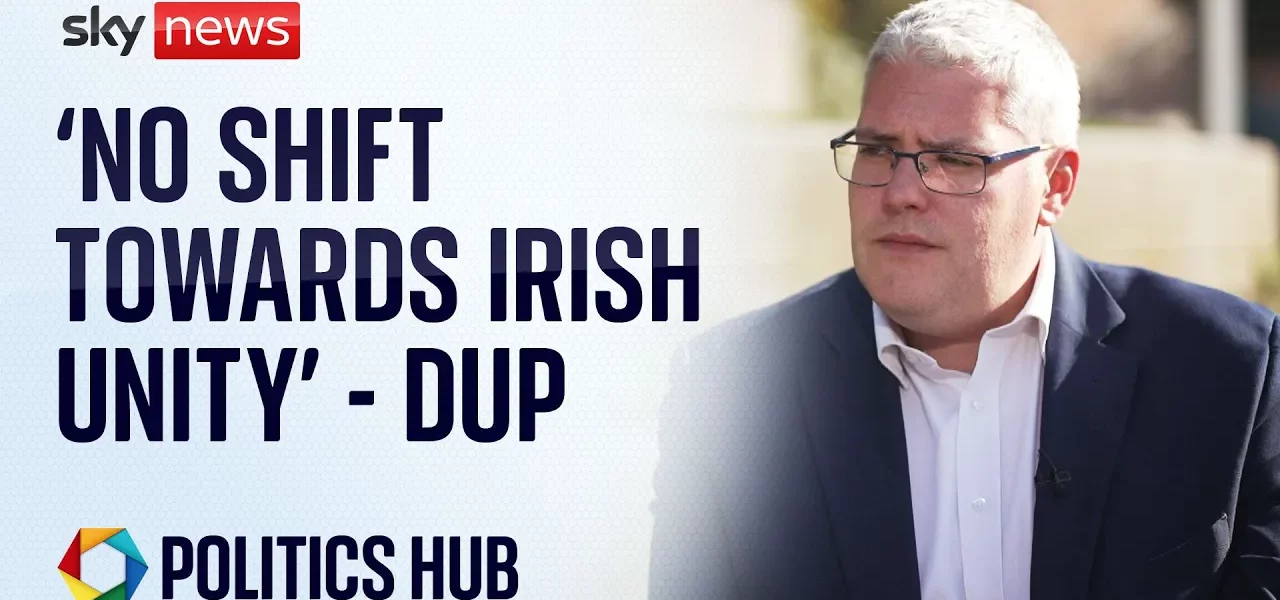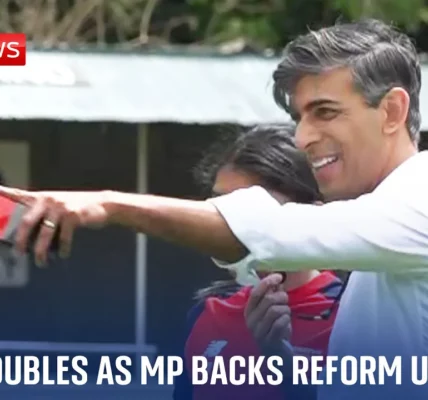Gavin Robinson Discusses DUP Leadership and Northern Ireland’s Political Landscape

In this article, we delve into the insights shared by Gavin Robinson, the leader of the Democratic Unionist Party (DUP), as he navigates the complexities of Northern Ireland’s political dynamics. With a unique perspective as a younger leader in a traditionally older political landscape, Robinson’s views on unionism, community service, and the challenges faced by the DUP provide a fresh take on the current state of affairs.
Introduction to Gavin Robinson’s Leadership
Gavin Robinson has emerged as a distinctive voice within the Democratic Unionist Party (DUP), known for its historical reputation of resistance and a firm stance on unionism. As the first unionist leader under the age of 40, Robinson brings a new energy and perspective to the table, reflecting a changing political landscape in Northern Ireland. His journey into politics is rooted deeply in his community involvement and a desire to address the pressing issues facing his constituents. This article explores Robinson’s insights on leadership, the state of unionism, and the path ahead for the DUP amid various challenges.
Understanding the DUP’s Role in Northern Ireland
The DUP has long been a significant player in Northern Ireland’s political scene, often characterized by a resistant approach. However, Robinson emphasizes a commitment to community service and the necessity of addressing difficult issues head-on. His assertion that the DUP must evolve to meet the needs of its constituents highlights a critical turning point in unionist politics.
Community Service and Political Responsibility
Robinson underscores the importance of serving the community. His remarks reflect a broader understanding that political leaders must listen and respond to the needs of the people they represent. Key points include:
- Engagement with constituents to understand their concerns.
- Addressing issues such as healthcare, education, and economic development.
- Promoting a positive narrative about the benefits of staying within the United Kingdom.
The Dynamics of Unionism and Nationalism
In discussing the binary politics of unionism versus nationalism, Robinson acknowledges the complexity of the relationship between these two ideologies, particularly in light of recent elections. His insights reveal a commitment to understanding and working within the political framework of Northern Ireland.
The Impact of Demographics on Political Landscape
Robinson notes that while there may not have been a significant shift in the overall voting patterns for nationalist parties, there has been a noticeable reconfiguration of strength within political blocks. He emphasizes that:
- The DUP must recognize the importance of their role in the current political climate.
- Demographic changes necessitate a reevaluation of strategies to engage younger voters.
- Maintaining a focus on unionist values while being open to dialogue with nationalist sentiments is crucial.
Challenges Faced by the DUP and Future Prospects
The past year has been filled with challenges for the DUP, particularly following the restoration of power-sharing after a prolonged boycott of the Stormont Assembly. Robinson reflects on the lessons learned and the path forward.
Addressing Internal Challenges
The impact of a former leader awaiting trial on serious charges has cast a shadow over the party. However, Robinson believes that these challenges can lead to unity and renewal within the party. He highlights:
- The importance of solidarity among colleagues during difficult times.
- Engaging with the community to rebuild trust and support.
- Focusing on a collective vision for the future of Northern Ireland.
Working with the Current Government
Robinson expresses cautious optimism about working with the new labor government. He stresses the need for careful nurturing of the political environment in Northern Ireland, emphasizing that:
- Decisions made at the Westminster level must consider the unique nuances of Northern Ireland.
- The DUP will continue to provide constructive opposition when necessary.
- Building a cooperative relationship with the government is essential for progress.
Conclusion
Gavin Robinson’s leadership marks a pivotal moment for the DUP and unionism in Northern Ireland. As he navigates the complexities of a changing political landscape, his commitment to community service, thoughtful engagement with constituents, and adaptability to new challenges will be vital. The future of the DUP, as Robinson envisions it, involves a dynamic approach to politics that embraces both the traditional values of unionism and the emerging needs of the community. As the party gathers for its conference, the message of renewal and unity is clear: the DUP is ready to face the challenges ahead and work towards a prosperous future for Northern Ireland.
For more insights into Northern Irish politics and community engagement, explore our related articles on political developments and community initiatives.
“`




